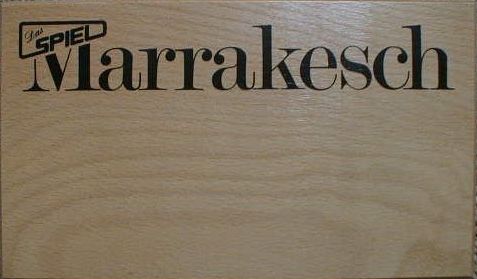Marrakesh (1978) Board Game
Marrakesh is an abstract strategy board game that was released in in 1978. It is designed by Joli Quentin Kansil and features artwork by Das Spiel, Xanadu Leisure, Ltd. The game is best played with 2 players and has a runtime of approximately 45 minutes. Marrakesh falls under the categories of Abstract Strategy, Card Game, and Dice game, with gameplay mechanics involving dice rolling and simultaneous action selection.
Game Components of Marrakesh
How To Setup Marrakesh
To set up Marrakesh, lay out the game board and ensure each player chooses a set of rug tiles and an Ass game piece. Each player starts at a designated location on the board. The game does not require complex initial arrangements, making it easy to begin.
Gameplay Mechanics and Game Objective
Mechanics
Game Objective
The goal is to have the most rugs visible in the market while maximizing the area covered by your rugs. Players aim to lay their rugs in a way that forces opponents to land on them, thereby earning coins.
Player Experience
Playing Marrakesh involves rolling a die to determine how many spaces your Ass can move. After moving, you place a rug tile adjacent to your Ass. The larger the connected area of your rugs, the more coins you can earn when opponents land on them. The game is simple to learn but requires strategic thinking to optimize your rug placements and trap opponents effectively.
Pros
Cons
Personal Thoughts on Marrakesh
Marrakesh is ideal for players who enjoy light to moderate strategy games with a focus on area control. It is a great introduction to this genre and offers a pleasantly approachable experience. The game is particularly suited for those who appreciate simple rules combined with tactical depth and a visually appealing game board. However, players seeking games with minimal randomness or those who prefer games with more complex mechanics might find Marrakesh a bit too straightforward.
We are supported by our audience. When you purchase through links on our site, we may earn an affiliate commission, at no extra cost for you. Learn more.

